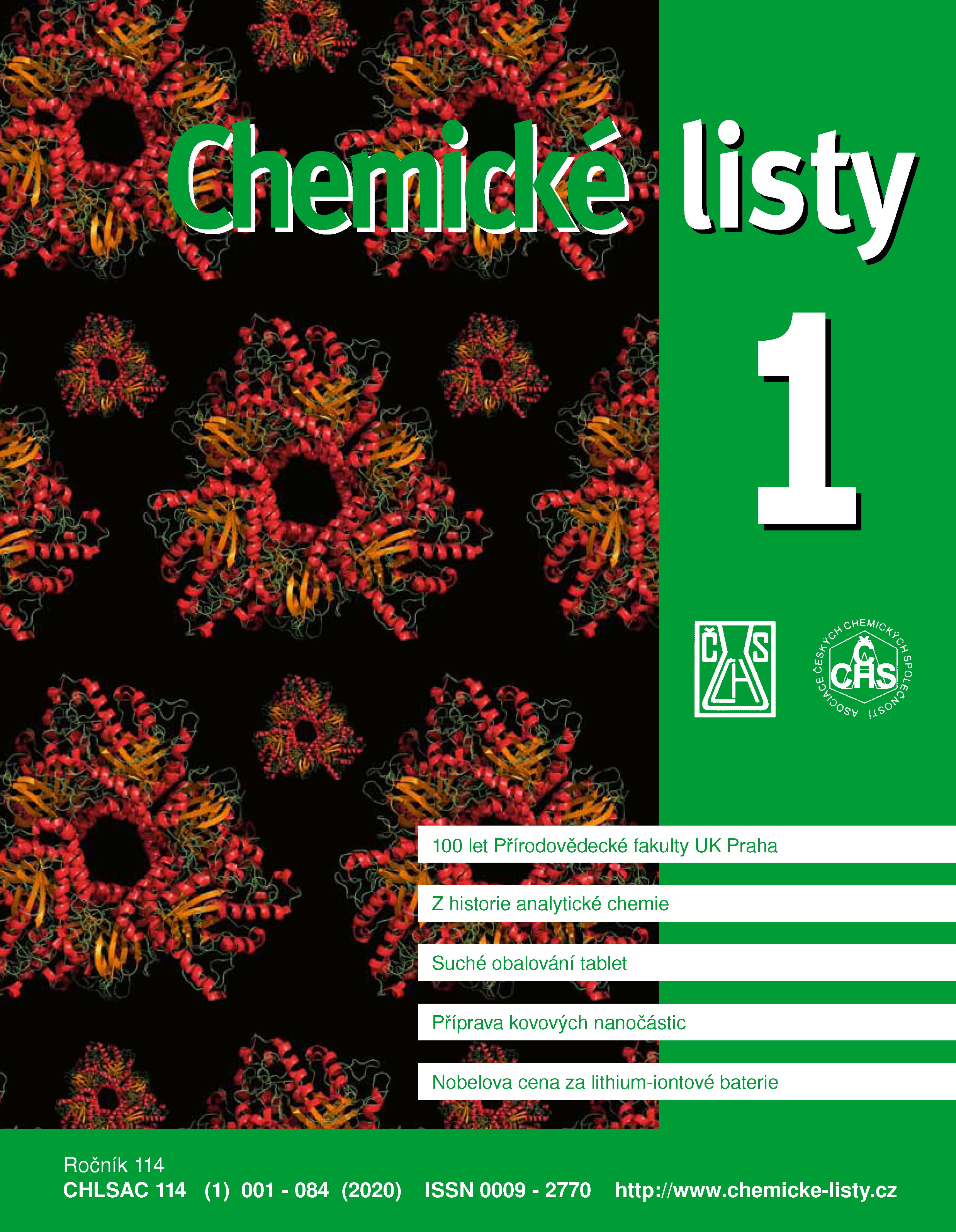High-Entropy Alloys: History, Preparation, Properties and Research
Keywords:
high-entropy alloys, history, preparation, microstructure, mechanical properties, CoCrFeNiMnAbstract
High-entropy alloys are formed of at least five elements in equiatomic compositions. The high value of configuration entropy of these alloys leads to the formation of solid solutions instead of intermetallic phases. These alloys are exhibiting outstanding mechanical properties and thermal stability, good corrosion resistance as well as a resistance against high-temperature oxidation. The beginning of the research of these alloys is dated back to 2004 when two relevant pioneering publications were published. Most commonly, these alloys are currently prepared by an induction melting or by the powder metallurgy methods. Those prepared by the latter method often exhibit better mechanical properties. At the Department of Metals and Corrosion Engineering of the University of Chemistry and Technology Prague, an effort is focused on the preparation of the high-entropy alloys by powder metallurgy methods, namely by mechanical alloying of pure elements followed by compaction via spark plasma sintering. Prepared compact alloys are showing nanocrystalline microstructure and thus promising excellent mechanical properties.





